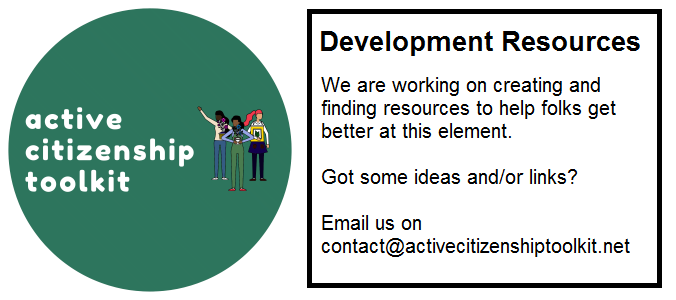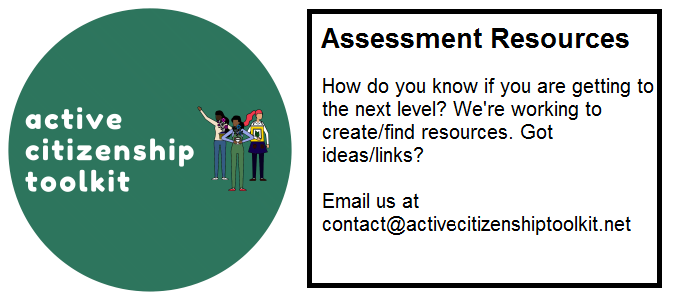Element Descriptor
Public meetings have a lot of words in them. Choosing the right words, for the right audiences, and delivering them in the right way at the right length, is a vastly underestimated skill. Failure to hone this means undiagnosed-for-the-most-part failure to inspire, recruit.
Level descriptors
| Novice | Practitioner | Expert | Ninja |
|---|---|---|---|
| With plenty of advance warning, you can devise and deliver, from a relatively standard template, a speech which gets the right level of detail, vivid framing and merciful brevity that has people coming up to you after and saying well done | With only brief advance warning, you can devise and deliver a bespoke/largely spontaneous speech which builds on what others have said (because you’ve been, you know, listening) and reframes the way people think about either the issue at hand or your group or both. The speech has a punchy beginning, a right -length middle and a memorable closing image which helps everyone figure out what matters. | With minimal advance warning the words, golden, informed, informative and compelling, flow from your lips, building on others comments, inspiring, re-inspiring and reinvigorating the cynical. You always bring the baby in under time, having said what you needed to in ways that open conversations and hearts. | Off the cuff you can speak to any audience at any length – from 60 seconds to 60 minutes, and have them applauding your mastery of the facts, the proposals for action, the mere existence of your group, even as the riot police start that intimidating baton-on-shield drumbeat. Barack Obama is a stumbling tongue-tied novice when stood next to you. |
Element Overview Essay
This is a draft. If something doesn’t make sense, or you see typos, or if you have further ideas, please email us on contact@activecitizenshiptoolkit.net
The reason this is done badly, is people are either nervous or the flip side- so assured and so complacent and so willing to rattle off their standard stump speech, that they haven’t actually paid attention to what it is that they’re being asked to talk about, and for the length that they are being asked to talk about. And so people speak for too long from their bog standard speech that doesn’t address the questions that the organisers of the meeting wanted them to. And it’s generally just part of the smugosphere, where everyone agrees in principle, but nothing ever is learnt or changes.
The consequences are that people are at best bored and confused. At worst it can work to decruit rather than recruit.
So what is to be done. If you are invited to speak,
I would recommend the following.
What am I being invited to speak about?
How long am I being invited to speak for? (and then come in under that time).
Are you going to create the conditions for people to talk among themselves. before the meeting, and crucially to come up with questions for me and the other panellists among themselves, to hone their questions, because if you don’t, what will happen is the people who’ve already come with their questions prepared, will stick their hand up and give long speeches. And those people tend to be old white men, and life is really too short for that.
Don’t baffle people with statistics. Tell a story. Be honest. Be interesting. Don’t repeat the standard stuff that everyone already knows.
Development Resources

Assessment Resources

